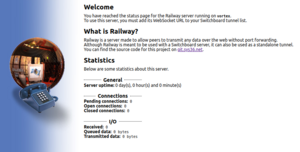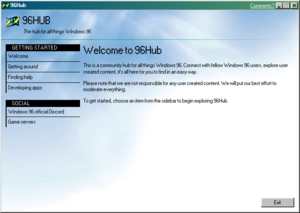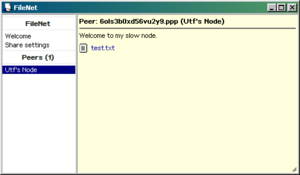
This page is a stub. You can help Wiki96 by extending it.
User note: Not enough content.
This is a list of features that were supposed to release for Windows 96 v3, but were cut from the final version.
Bell
Bell was the intended successor to P3. It was briefly included in the V3 private beta, but was removed in the final release version.
Rather than relying on a single server to relay data, Bell used multiple types of servers, which helped reliability and latency.
Switchboard
The role of the Switchboard server is to help peers make connections with each-other. Upon connecting, you are assigned an address generated from a seed, similar to P3.
In order to make a connection, a peer has to send a connection request to another peer through Switchboard. The remote peer can then reject or accept the connection.
If the connection is accepted, a Railway server with the lowest latency is selected by the peers, as well as a token that will be used to connect.
Railway
The purpose of the Railway server is solely to relay data between peers. Any WebSocket client can connect with another peer through this server, so long as they have a common token.
96Hub
96Hub was supposed to be a program to help new users discover Windows96 and participate in its community.
After the Wiki was founded, it was deemed unnecessary and scrapped from the final version.
FileNet
FileNet was a file-sharing program that used the P3 network to discover peers and transfer files.
Node
Nodes are users on the FileNet network that are sharing files publicly. Each node can have a user-readable name and description, shown upon clicking it.


